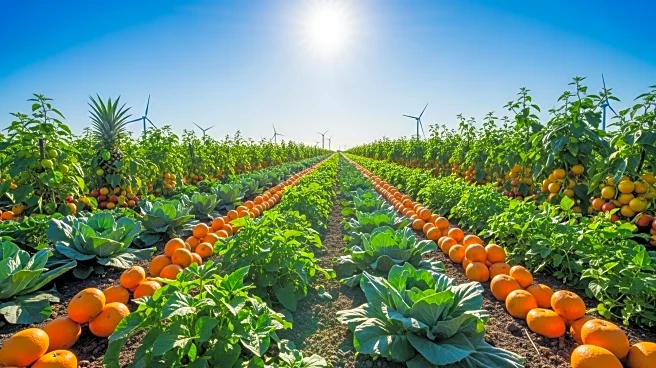What is the story about?
What's Happening?
Extreme weather events driven by climate change are posing significant threats to global food security. Droughts, floods, and temperature extremes have led to crop stress and poor yields in essential crops like wheat, corn, rice, and potatoes. The European Investment Bank reports annual climate-induced losses of €28.3 billion in the EU agricultural sector. Ag-tech solutions such as AI, IoT, and blockchain are being deployed to help farmers adapt and mitigate risks, but smallholders need access to these technologies to remain competitive.
Why It's Important?
The impact of climate change on food security has far-reaching consequences for global economies and societies. Rising food prices and scarcity of essential commodities can lead to economic instability and social unrest. The agricultural sector's ability to adapt to climate challenges is crucial for ensuring a stable food supply and maintaining global trade networks. Investment in technology and infrastructure is necessary to support farmers and protect food security, highlighting the need for coordinated efforts across industries and governments.
What's Next?
The food industry must prioritize investment in technologies that enhance resilience and sustainability. Ensuring access to advanced tools for all farmers, including smallholders, is critical for maintaining supply chain stability. Industry leaders and policymakers are expected to collaborate on strategies to address regulatory challenges and support compliance with emerging standards. The focus will be on creating inclusive solutions that empower farmers to adapt to changing environmental conditions.
















